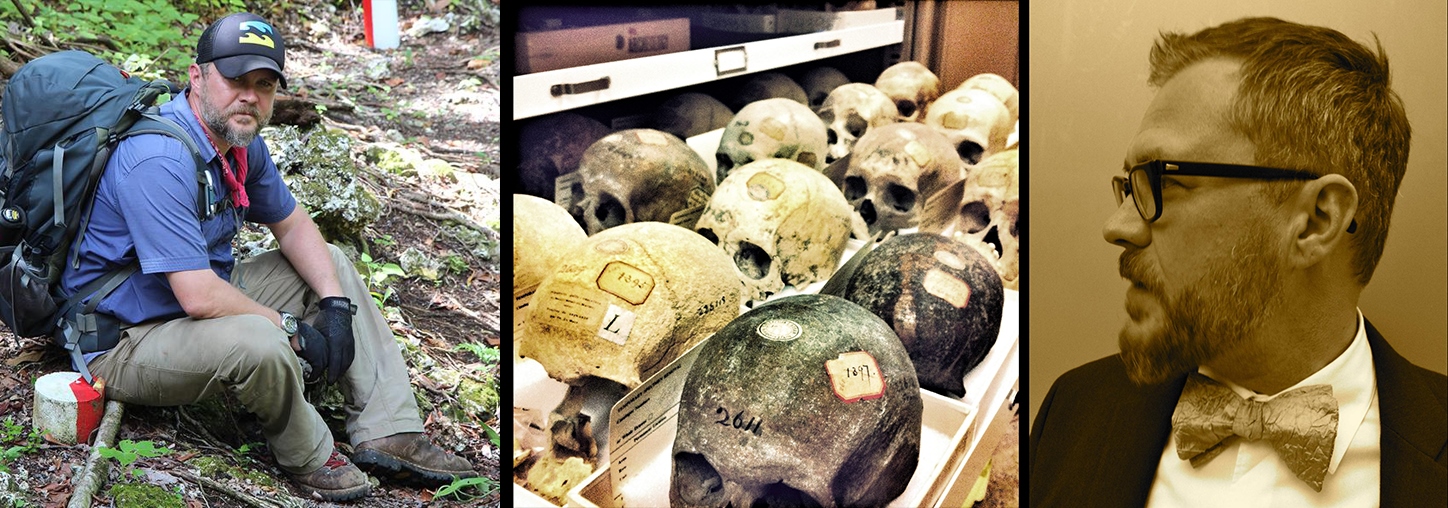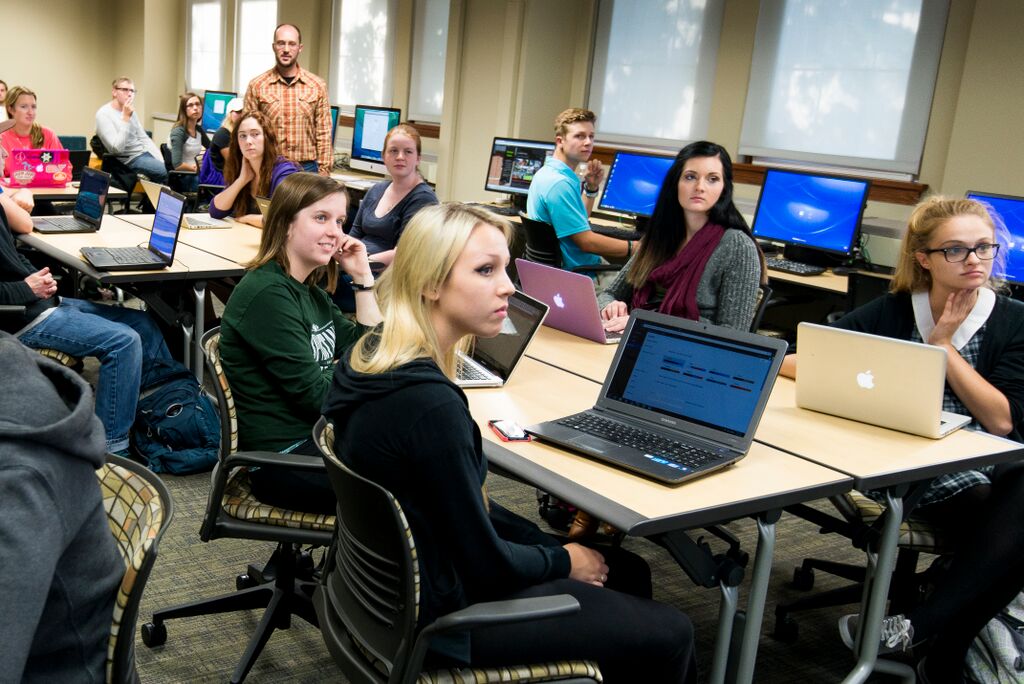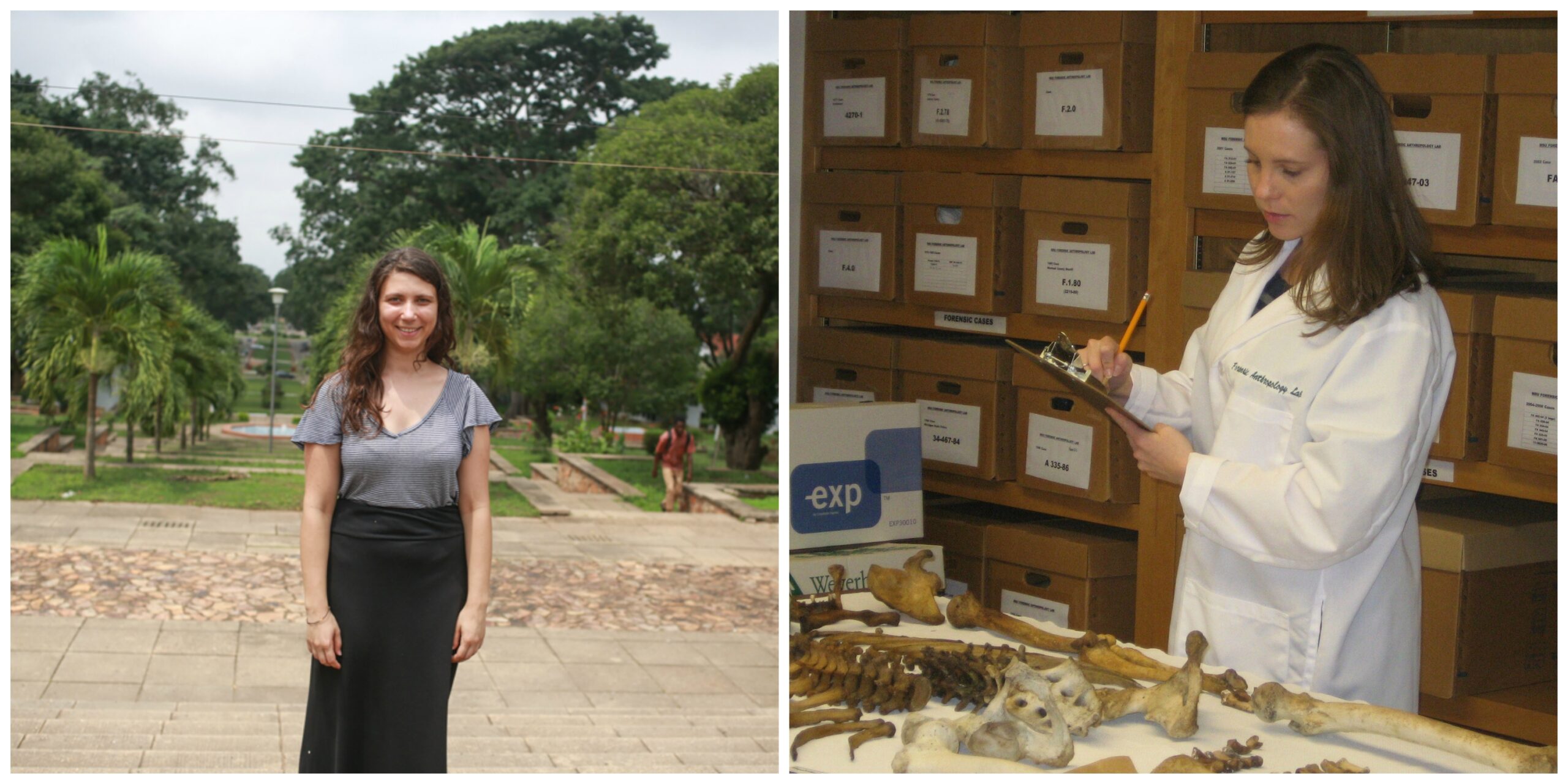-
Dr. Norman J. Sauer Named Vice President of the American Academy of Forensic Sciences
Dr. Norman J. Sauer, Professor Emeritus of Anthropology, was named Vice President of the American Academy of Forensic Sciences (AAFS) at the Annual Meeting in Orlando, Florida. This prestigious position is an honor for Dr. Sauer, and it places the MSU Department of Anthropology in the international spotlight while Dr. Sauer serves his term of office. […]
-

Dr. Joseph T. Hefner Receives Major Grant
We are pleased to announce that Dr. Hefner has received a grant in the amount of $423,959 from the National Institute of Justice (NIJ) to fund the project A Macromorphoscopic Databank: Establishing the Statistical Analysis of Macromorphoscopic Data in Forensic Anthropology. The two-year research project will address a methodological gap in forensic anthropology by providing […]
-
New Book by Mara Leichtman: Shi’i Cosmopolitanisms in Africa: Lebanese Migration and Religious Conversion in Senegal
Dr. Mara Leichtman announces the publication of her new book Shi’i Cosmopolitanisms in Africa: Lebanese Migration and Religious Conversion in Senegal. The book is available from Indiana University Press starting September 27, 2015. From the publisher’s website: Mara A. Leichtman offers an in-depth study of Shi‘i Islam in two very different communities in Senegal: the well-established Lebanese diaspora and […]
-

The Lab for the Education and Advancement in Digital Research (LEADR) Completes a Successful First Year
This fall marks the one-year anniversary of LEADR (the Lab for the Education and Advancement in Digital Research), a new joint initiative among Anthropology, History, and MATRIX Center for Digital Humanities and Social Sciences. LEADR functions an interdisciplinary classroom, digital resource library, and a pedagogical and methodological support center located in 112 Old Horticulture. […]
-
New Book by Chantal Tetreault: Transcultural Teens: Performing Youth Identities in French Cités
Dr. Chantal Tetreault announces the publication of her new book Transcultural Teens: Performing Youth Identities in French Cités, available from Wiley-Blackwell starting May of 2015. From the publisher’s website: Transcultural Teens provides readers with a window onto the cultural and linguistic creativity of the housing projects, or cités, that ring Paris, showing how young people of Algerian Arab origins […]
-
New Book by Andrea Louie: How Chinese Are You? Adopted Chinese Youth and their Families Negotiate Identity and Culture
Dr. Andrea Louie’s new book How Chinese Are You? Adopted Chinese Youth and their Families Negotiate Identity and Culture was released in August of 2015. In it, Dr. Louie examines the challenges Chinese adoption presents to families trying to honor their children’s “birth culture.” This ethnographic study analyzes how both white and Asian American adoptive parents […]
-

Sabrina Perlman and Julie Fleischman Awarded Fulbright IIE Grants
The Department of Anthropology is very happy to announce that Sabrina Perlman (left) and Julie Fleischman (right) have been awarded Fulbright IIE Grants. Recipients of Fulbright grants are selected on the basis of academic and professional achievement, as well as demonstrated leadership potential. Julie will conduct her dissertation research on Khmer Rouge regime violence by […]
-
Spring 2015 Message from the Acting Chair: Dr. Laurie Medina
Greetings! As another academic year winds down, we are celebrating graduations. But we are also gearing up for a busy summer. Students and faculty will soon disperse to pursue research and language study in places across the world. On campus, the Campus Archaeology Program, directed by Dr. Lynne Goldstein, will run an archaeological field school […]
-
Undergraduate Peer Mentor positions available for Summer 2015 online class ISS 215 “Navigating U.S. Culture”
The MSU Department of Anthropology is accepting applications from students interested in being Undergraduate Peer Mentors in a 200-level ISS online class focused on exploring social and cultural diversity in the United States. Peer mentors work with groups of about 10–15 students to encourage them to stay engaged with class materials and assignments. You should […]
-
Department of Anthropology Undergraduate Student Joshua Schnell Wins Prestigious Beinecke Scholarship
The Department of Anthropology is very proud to announce that Joshua Schnell has been awarded the highly prestigious and competitive Beinecke Scholarship. Founded in 1971, the Beinecke Scholarship supports students pursuing graduate studies in the arts, humanities and social sciences. Joshua Schnell, a junior, is an Honors College member studying Anthropology and Religious Studies. He has […]